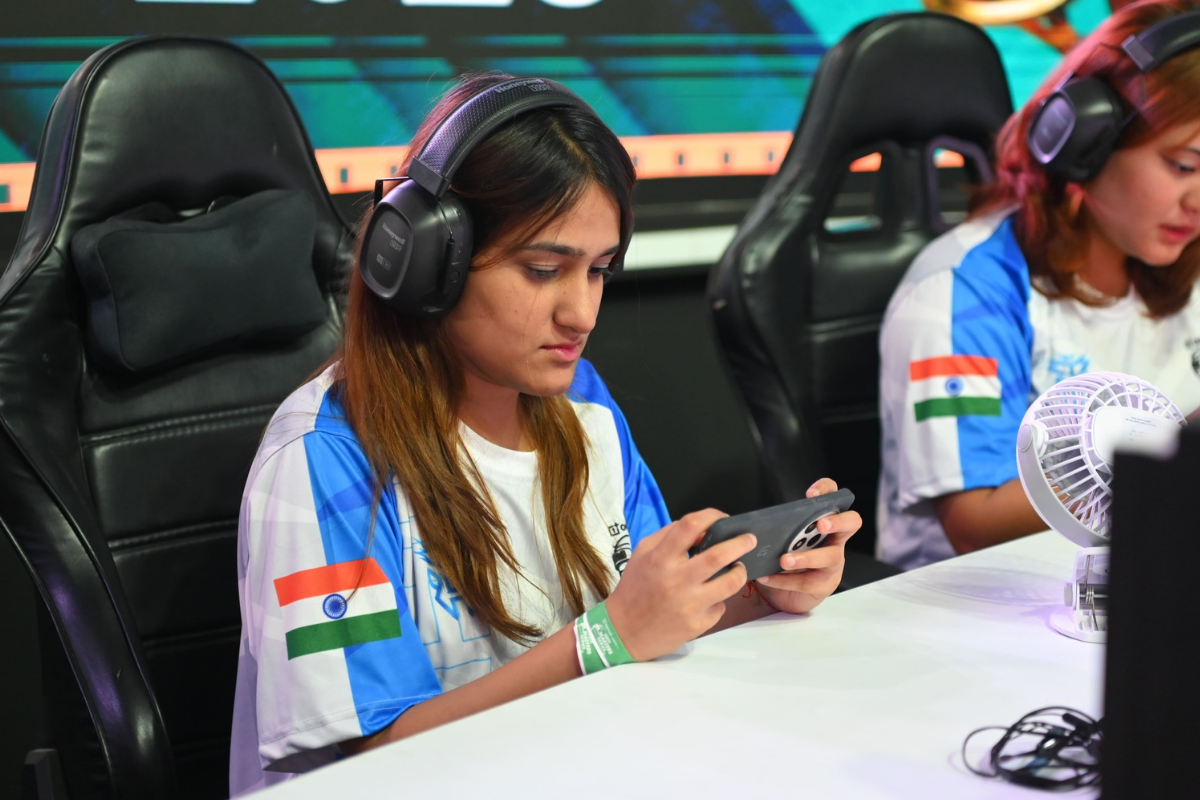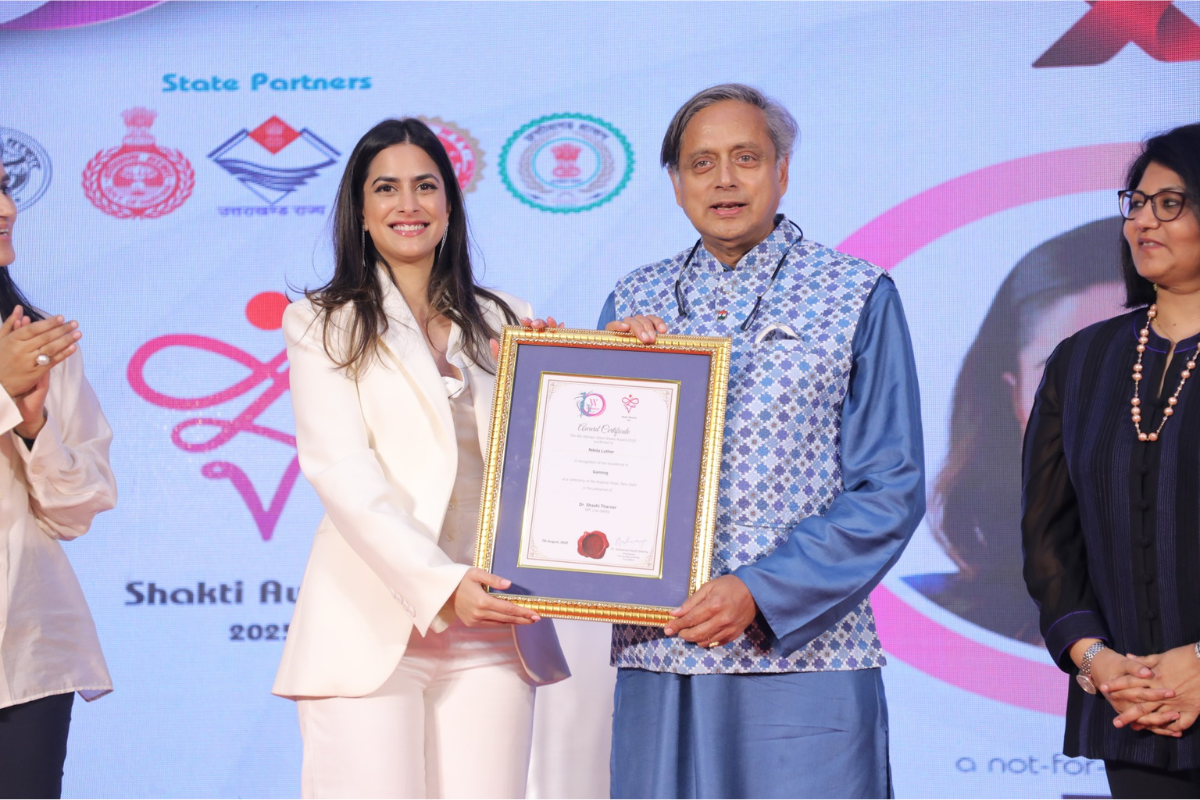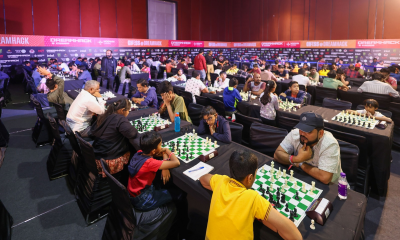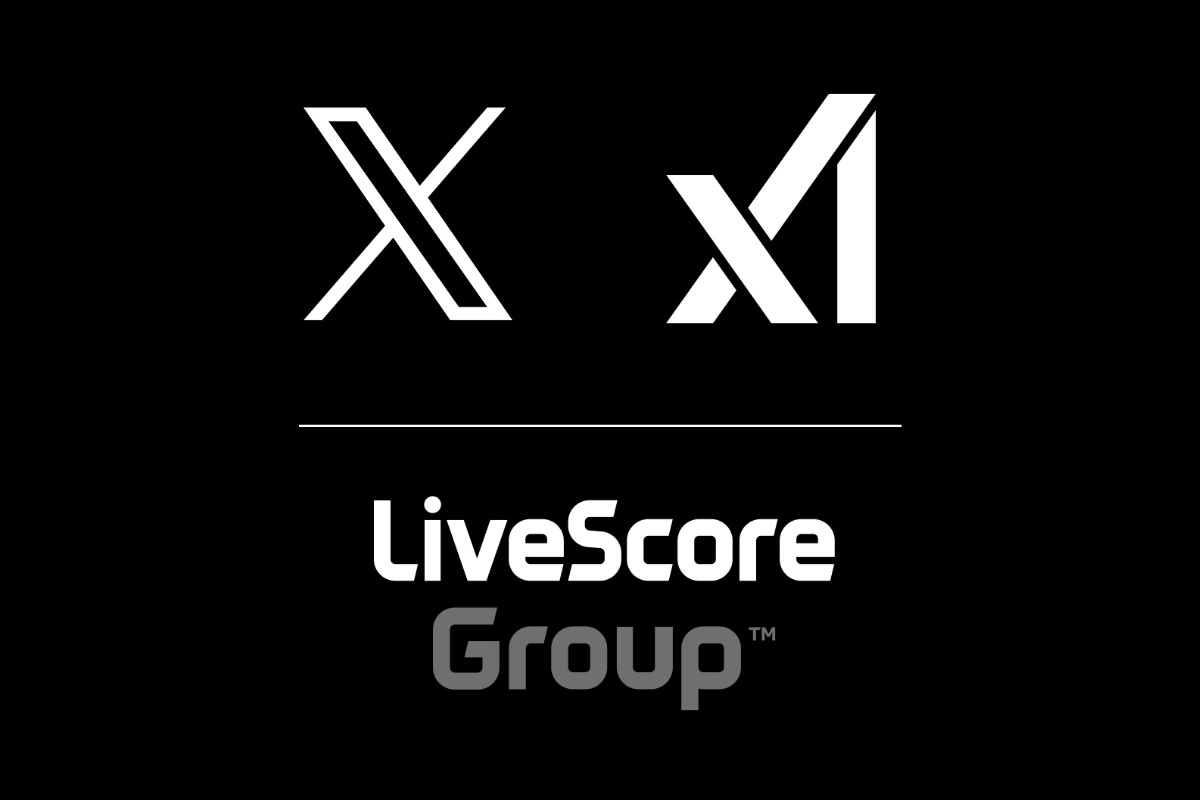Asia
Paving the Way for Regulated iGaming market: Will India See the Rise?
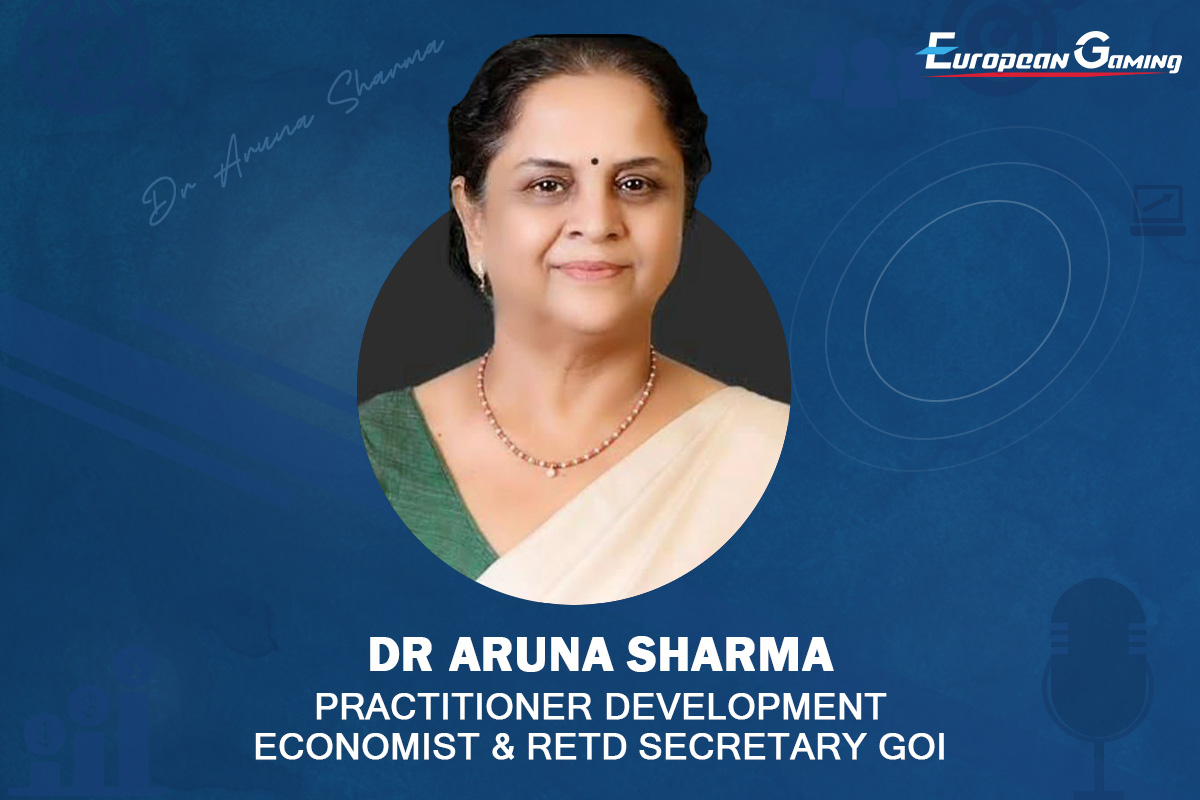
By Dr Aruna Sharma, Practitioner Development Economist & Retd Secretary GoI
Could you provide insights into the current market potential for iGaming in India, and what key challenges do you anticipate the industry facing in the near future?
The popularity of online gaming as a form of entertainment in India has surged with the widespread availability of inexpensive smartphones and affordable internet access. Global investors, developers, and other industry stakeholders are keenly watching the growth story of the Indian online gaming industry which has witnessed a 28% CAGR between FY20-23 and holds a market valuation of ₹16,428 crores.
However, instead of direct contribution in the economic growth story of India the online gaming industry is contributing in terms of increasing revenue (direct and indirect tax) collection (year-on-year). Additionally, the sector has attracted budding tech developers and entrepreneurs by providing them employment opportunities and fueling innovation to keep up with the rising demand for AI and other such immersive gaming experiences.
After some crucial and elucidative changes in the regulatory and taxation policies by the government in 2023, one can hope that 2024 for iGaming will thin the clouds that are shadowing accelerated growth of iGaming in India. 2024 holds promise for iGaming in India. While full regulation may take time, positive court ruling and increased focus on non-RMG segments could cause a casual gaming boom, potentially unlocking a multi-billion dollar market. However, regulatory uncertainty and potentially high tax rates remain a hurdle for attracting investments and interest of other stakeholders in this growing market and industry.
What are the main challenges facing Indian iGaming and how different are these challenges within the different regions of India?
- The government is focusing on reducing threats like false information, mental health problems, money laundering, and financial losses for users by bringing rules and regulations such as the IT Rules, establishing SROs and SRBs.
- Adequate regulation, that is conducive to doing business, is needed, first of all, to protect the Indian players. Because in the current situation, Indians are being abused by countless nefarious parties. Checking and curbing the illegal gaming platforms and enhancing mechanisms to ensure increased user awareness and behaviour while indulging in online gaming.
- A pressing concern that requires governments urgent attention is to put in place parameters that differentiate between games of skill and chance for taxation.
- As a fallout of high and retrospective taxation the industry is facing job losses, advertising and spending cuts and reduced investments in research and innovations.
Additionally, policy and regulatory compliance for the platforms have become increasingly complex with both center and state governments legislating on the same subjects and multiple ministries regulating the industry.
Delve into the necessity for a regulatory framework that is both balanced and adaptable.
Unregulated framework where user base is large leads to spread of iGaming in gray market with all its vices. By regulating the iGaming industry, the government can unlock other positive outcomes, such as increased tax revenues, economic growth via attracting more foreign investment, job creation, and better consumer protection. A thorough regulatory framework will enable transparent parameters to distinguish and license the game of skill accordingly and rest will fall under game of chance.
Regulations always bring in transparency and ensure there is no misleading advertising or non-payment of legal taxes. Additionally, regulations such as the IT Amendment Rules, 2023 have ascertained a robust grievance redressal mechanism by setting up of the SRBs and SROs.
Further a balanced and stable regulatory framework could provide assurance and confidence to the international iGaming companies in paying taxes while doing business in a regulated and transparent market, create jobs, and invest in the country and its people. Thus, comprehensive regulations, that are conducive to doing business and protect the Indian players, who are being abused by countless nefarious parties are necessary in the current iGaming landscape.
Consequently, foreign iGaming companies operating legally have consistently demanded that the Indian government establish an adequate and stable regulation and taxation regime. Instead, the government has consistently chosen to unwisely prohibit it, thus pushing this whole industry underground. Furthermore, iGaming companies face unfair persecution and baseless lawsuits from India.
The new 28% GST on online gaming has produced divided opinions about the industry’s future in India. How has the industry reacted to it?
Industry initially panicked at the 28% tax, fearing slow growth and reduced investments. The partial relief, clarification on the regulatory compliances have brought cautious optimism. Smaller firms remain anxious, fearing the high rate still discourages players and favors larger businesses. Long-term impact depends on pending Supreme Court judgment on game classification and potential tweaks to the tax structure.
The applicability of a flat 28% tax on the total value of bets placed in online gaming, irrespective of whether they are games of skill or chance has upset the applecart that was moving smoothly with the evolution of agreed principles among SROs and the oversight by SRB with clear distinction of the regulatory body between Games of Skill (permissible games) with that of Games of Chance.
The matter is now being reviewed by a Group of Ministers (GoMs) comprising of officials from ministries such as the Home, Finance, MeitY, etc. to reconsider the GST and how to counter episodes of money laundering and other such scams and frauds.
Finally, what can we expect from Indian iGaming as a whole this year, if you were to sum it up in three key points?
It is expected that 2024 will set pace by bringing in clarity in rule making, consistency of rules, inculcating a more stable policy environment that enables India to not miss the bus of becoming a hub for developers. The iGaming industry is expected to tighten its grip for filling the digital divide, enabling learning of cognitive skills and enhance conscious citizen messaging to further tap into the positive side of iGaming.
Additionally, iGaming industry should leverage technologies like blockchain to further the purpose of transparency and tracking of digital payment as a technical solution and for permanent storage of records to curb money laundering. Alongside formulation of regulatory policies, a stricter implementation of policies such as IT Rules (establishing SRBs), mandatory KYC, and compliance with Advertisement Standard Council in India (ASCI) norms for iGaming industry need to be inculcated in ensuring safe and secure gaming platforms.
The future of the gaming industry holds promise of growth, however, there is still a hazard that due to absent market regulation and destructive policies, international iGaming companies shun India, sending an unwelcoming signal to many other potential foreign investors.
-

 Asia7 days ago
Asia7 days agoDigital gaming disruption tackled in 1st AsPac Regulators’ Forum
-

 Africa7 days ago
Africa7 days agoBetKing Renews Ikorodu City FC Partnership for 2025/26 NPFL Season
-

 Compliance Updates6 days ago
Compliance Updates6 days agoKongebonus statement: Norway’s election result signals gambling policy continuity, but licensing debate is set to intensify
-
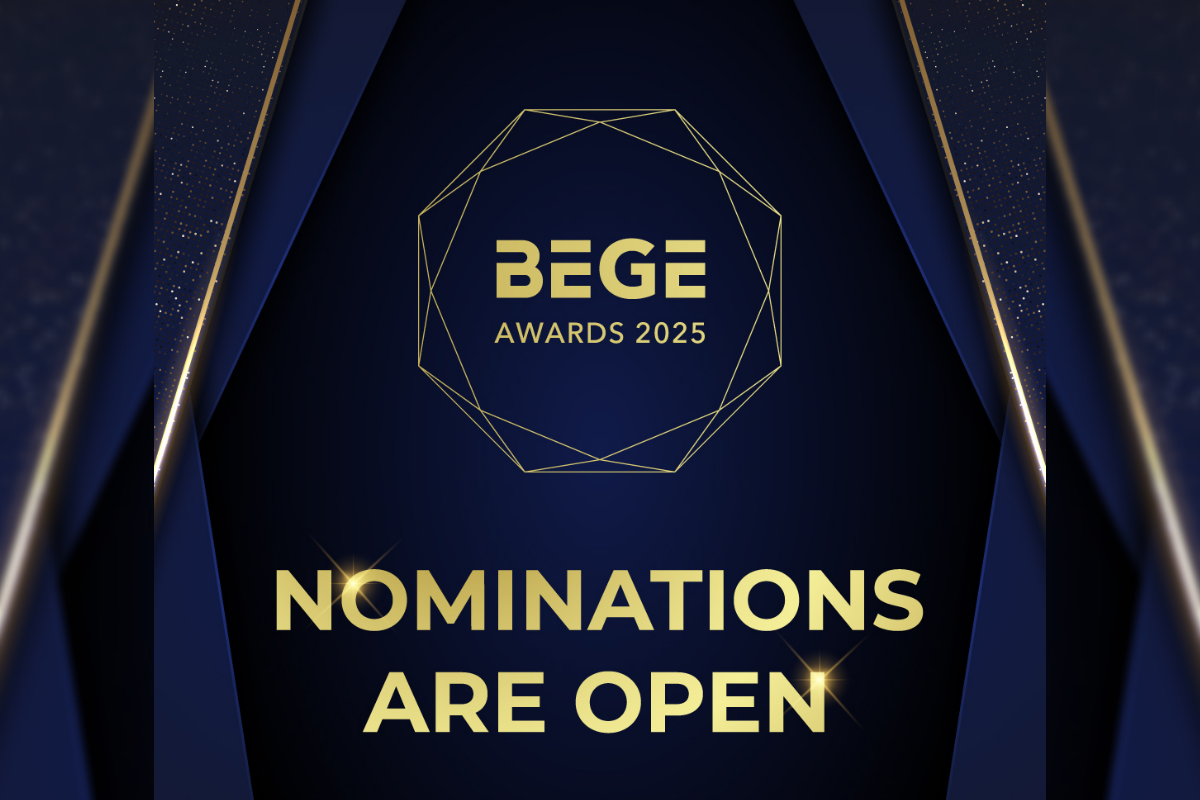
 Balkans7 days ago
Balkans7 days agoBEGE Awards Nominations Now Open – Celebrating 16 Years of Industry Excellence!
-

 Latest News7 days ago
Latest News7 days agoWin a Fruity Fortune in BGaming’s Bonanza Trillion
-

 Latest News6 days ago
Latest News6 days agoAnswer the Call of the Wild: ELA Games Unveils Its Latest Game “Buffalo Force”
-

 Latest News7 days ago
Latest News7 days agoSaddle up for big wins under the Bison Moon with the latest slot from Northern Lights Gaming
-

 Latest News7 days ago
Latest News7 days agoSlots Temple Announces Exclusive Free-to-Play Tournament Partnership with Pragmatic Play







